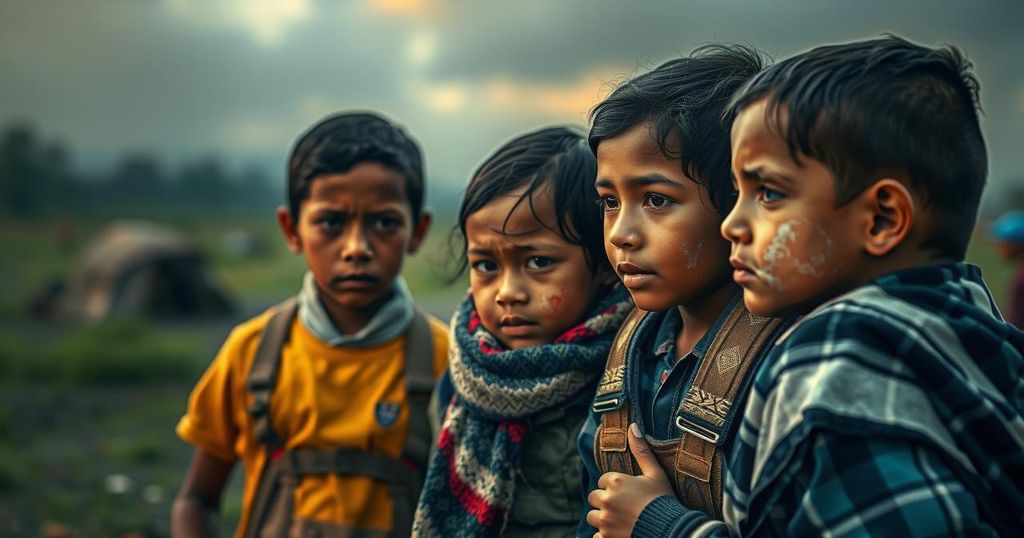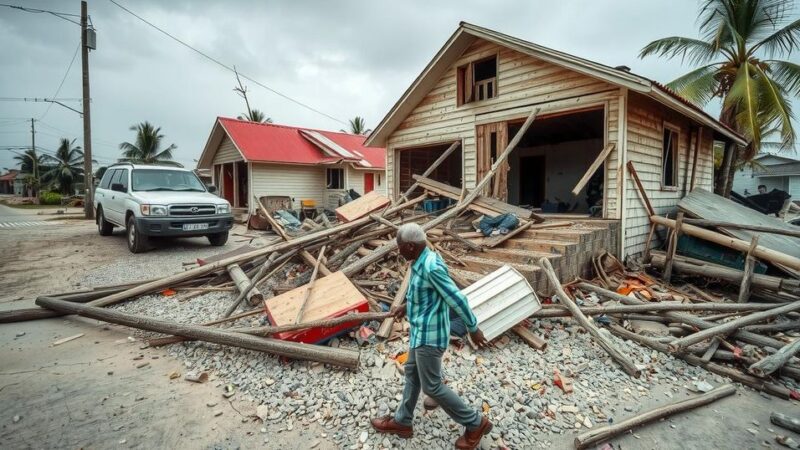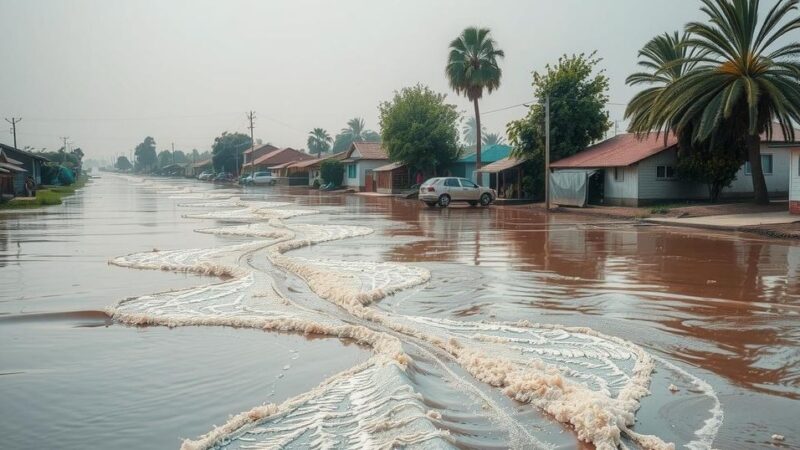The article highlights the urgent need to address the intersection of children’s rights with climate change and armed conflict, referencing a 2023 report that connects these challenges. It advocates for integrating children’s needs into climate and security discussions, particularly at the COP29 conference in Baku. UNICEF’s findings indicate that nearly 1 billion children live in high-risk climates, necessitating targeted humanitarian responses. The call for comprehensive policy adjustments to include children in such crises underscores the critical demand for sustainable solutions.
In light of the ongoing global conflicts and the increasing impacts of climate change, attention to the needs of children affected by these crises has grown in urgency. A 2023 report cited a direct relationship between climate insecurity and significant violations against children in conflict scenarios. This study, published by the Office of the Special Representative of the UN Secretary-General for Children and Armed Conflict (CAAC), advocates for a dual approach that combines considerations of climate and child welfare. As world leaders convened in Baku, Azerbaijan, for the COP29 climate conference, the need to integrate discussions on climate change, armed conflict, and their effects on children became more pronounced. The Special Representative of CAAC emphasized how essential it is to recognize the deteriorating conditions for children across various regions affected by both climate and conflict. Notably, she stated that these children are often marginalized in current discussions surrounding climate, peace, and security, indicating a significant gap in strategic planning and solutions. UNICEF has identified that almost 1 billion children live in countries severely impacted by climate change, further complicating their situation in regions affected by conflict. The Guiding Principles for Children on the Move, developed in collaboration with the International Organization for Migration (IOM) and UNICEF, outlines the challenges of protecting children’s rights as they face displacement due to climate and conflict scenarios. The call to action is clear: leaders must recalibrate their focus to include children in financial and humanitarian efforts directed at resolving these intertwined crises. The Special Representative urged stakeholders to support funding for emergencies that address both the repercussions of armed conflict and the climate crisis, accentuating that such support can yield sustainable solutions. As the link between climate change and armed conflict becomes increasingly evident, the necessity of addressing children’s needs in this context cannot be overstated.
The article discusses the intersection of climate change and armed conflicts, highlighting how these global issues impact children, particularly in terms of their rights and vulnerabilities. It draws on recent studies asserting that climate insecurity directly contributes to violations against children in conflict zones. With numerous regions experiencing the dual challenges of climate change and armed conflict, the article emphasizes the need for a strategic response that includes a focus on children’s welfare amid these crises. Advocacy for policy changes and funding support is positioned as a central theme to address the dire circumstances children face.
The necessity to incorporate children’s needs into discussions about climate change and armed conflict is paramount. As evidenced by recent reports, there is a profound connection between these issues, disproportionately affecting vulnerable populations like children. By emphasizing a collaborative approach in strategies and funding, it is feasible to create sustainable solutions that address both climate change and the repercussions of armed conflict. Ensuring that children are prioritized in these discussions is essential for fostering a holistic response to these intertwined crises.
Original Source: www.ipsnews.net







